- Home
- Patricia Cornwell
Point of Origin Page 3
Point of Origin Read online
Page 3
I looked past Marino into the cockpit, where Lucy talked into the radio, making comments to her ATF copilot as they nodded at a Chinook helicopter below horizon and a plane so distant it was a sliver of glass. The sun lit up our journey by degrees, and it was difficult to concentrate as I watched my niece and felt wounded again.
She had quit the FBI because it had made certain she would. She had left the artificial intelligence computer system she had created and robots she had programmed and the helicopters she had learned to fly for her beloved Bureau. Lucy had walked off from her heart and was no longer within my reach. I did not want to talk to her about Carrie.
I silently leaned back in my seat and began reviewing paperwork on the Warrenton case. Long ago I had learned how to focus my attention to a very sharp point, no matter what I thought and in spite of my mood. I felt Marino staring again as he touched the pack of cigarettes in his shirt pocket, making sure he was not without his vice. The chopping and flapping of blades was loud as he slid open his window and tapped his pack of cigarettes to shake one loose.
“Don’t,” I said, turning a page. “Don’t even think about it.”
“I don’t see a No Smoking sign,” he said, stuffing a Marlboro into his mouth.
“You never do, no matter how many of them are posted.” I reviewed more of my notes, puzzling again over one particular statement the fire marshal had made to me over the phone yesterday.
“Arson for profit?” I commented, glancing up. “Implicating the owner, Kenneth Sparkes, who may have accidentally been overcome by the fire he started? Based on what?”
“Is his the name of an arsonist or what?” Marino said. “Gotta be guilty.” He inhaled deeply and with lust. “And if that’s the case, he got what he deserves. You know, you can take them off the street but can’t take the street out of them.”
“Sparkes was not raised on the street,” I said. “And by the way, he was a Rhodes scholar.”
“Road scholar and street sound like the same damn thing to me,” Marino went on. “I remember when all the son of a bitch did was criticize the police through his newspaper chain. Everybody knew he was doing cocaine and women. But we couldn’t prove it because nobody would come forward to help us out.”
“That’s right, no one could prove it,” I said. “And you can’t assume someone is an arsonist because of his name or his editorial policy.”
“Well, it just so happens you’re talking to the expert in weird-ass names and how they fit the squirrels who have them.” Marino poured more coffee as he smoked. “Gore the coroner. Slaughter the serial killer. Childs the pedophile. Mr. Bury buried his victims in cemeteries. Then we got Judges Gallow and Frye. Plus Freddie Gamble. He was running numbers out of his restaurant when he got whacked. Dr. Faggart murdered five homosexual males. Stabbed their eyes out. You remember Crisp?” He looked at me. “Struck by lightning. Blew his clothes all over the church parking lot and magnetized his belt buckle.”
I could not listen to all this so early in the morning and reached behind me to grab a headset so I could drown Marino out and monitor what was being said in the cockpit.
“I wouldn’t want to get struck by lightning at no church and have everybody read something into it,” Marino went on.
He got more coffee, as if he did not have prostate and urinary troubles.
“I’ve been keeping a list all these years. Never told no one. Not even you, Doc. You don’t write down shit like this, you forget.” He sipped. “I think there’s a market for it. Maybe one of those little books you see up by the cash register.”
I put the headset on and watched rural farms and dormant fields slowly turn into houses with big barns and long drives that were paved. Cows and calves were black-spotted clusters in fenced-in grass, and a combine churned up dust as it slowly drove past fields scattered with hay.
I looked down as the landscape slowly transformed into the wealth of Warrenton, where crime was low and mansions on hundreds of acres of land had guest houses, tennis courts and pools, and very fine stables. We flew lower over private airstrips and lakes with ducks and geese. Marino was gawking.
Our pilots were silent for a while as they waited to be in range of the NRT on the ground. Then I caught Lucy’s voice as she changed frequencies and began transmitting.
“Echo One, helicopter niner-one-niner Delta Alpha. Teun, you read me?”
“That’s affirmative, niner Delta Alpha,” T. N. McGovern, the team leader, came back.
“We’re ten miles south, inbound-landing with passengers,” Lucy said. “ETA about eight hundred hours.”
“Roger. It feels like winter up here and not getting any warmer.”
Lucy switched over to the Manassas Automated Weather Observation Service, or AWOS, and I listened to a long mechanical rendition of wind, visibility, sky condition, temperature, dew point, and altimeter setting according to Sierra time, which was the most recent update of the day. I wasn’t thrilled to learn that the temperature had dropped five degrees Celsius since I had left home, and I imagined Benton on his way to warm sunshine and the water.
“We got rain over there,” Lucy’s copilot said into his mike.
“It’s at least twenty miles west and the winds are west,” Lucy replied. “So much for June.”
“Looks like we got another Chinook coming this way, below horizon.”
“Let’s remind ’em we’re out here,” Lucy said, switching to a different frequency again. “Chinook over Warrenton, helicopter niner-one-niner Delta Alpha, you up this push? We’re at your three o’clock, two miles northbound, one thousand feet.”
“We see you, Delta Alpha,” answered the twin rotor Army helicopter named for an Indian tribe. “Have a good’n.”
My niece double-clicked the transmit switch. Her calm, low voice seemed unfamiliar to me as it radiated through space and bounced off the antennas of strangers. I continued to eavesdrop and, as soon as I could, butted in.
“What’s this about wind and cold?” I asked, staring at the back of Lucy’s head.
“Twenty, gusting to twenty-five out of the west,” she sounded in my headset. “And gonna get worse. You guys doing all right back there?”
“We’re fine,” I said as I thought of Carrie’s deranged letter again.
Lucy flew in blue ATF fatigues, a pair of Cébé sunglasses blacking out her eyes. She had grown her hair, and it gracefully curled to her shoulders and reminded me of red jarrah wood, polished and exotic, and nothing like my own short silver-blond strands. I imagined her light touch on the collective and cyclic as she worked antitorque pedals to keep the helicopter in trim.
She had taken to flying like everything else she had ever tried. She had gotten her private and commercial ratings in the minimum required hours and next got her certificated flight instructor rating simply because it gave her joy to pass on her gifts to others.
I needed no announcement that we were reaching the end of our flight as we skimmed over woods littered with felled trees scattered haphazardly like Lincoln Logs. Dirt trails and lanes wound narrowly, and on the other side of gentle hills, gray clouds got vertical as they turned into vague columns of tired smoke left by an inferno that had killed. Kenneth Sparkes’s farm was a shocking black pit, a scorched earth of smoldering carnage.
The fire had left its trail as it had slaughtered, and from the air I followed the devastation of splendid stone dwellings and stables and barn to wide charred swaths that had denuded the grounds. Fire trucks had rolled over sections of the white fence surrounding the property and had churned up acres of manicured grass. Miles in the distance were more pasture land and a narrow paved public road, then a Virginia Power substation, and farther off, more homes.
We invaded Sparkes’s privileged Virginia farm at not quite eight A.M., landing far enough away from ruins that our rotor wash did not disturb them. Marino climbed out and went on without me as I waited for our pilots to brake the main rotor and turn off all switches.
“Thanks for the l
ift,” I said to Special Agent Jim Mowery, who had helped Lucy fly this day.
“She did the driving.”
He popped open the baggage door.
“I’ll tie her down if you guys want to go on,” he added to my niece.
“Seems like you’re getting the hang of that thing,” I lightly teased Lucy as we walked away.
“I limp along the best I can,” she said. “Here, let me get one of those bags.”
She relieved me of my aluminum case, which did not seem to weigh much in her firm hand. We walked together, dressed alike, although I did not wear gun or portable radio. Our steel-reinforced boots were so battered they were peeling and almost gray. Black mud sucked at our soles as we drew closer to the gray inflatable tent that would be our command post for the next few days. Parked next to it was the big white Pierce supertruck with Department of the Treasury seals and emergency lights, and ATF and EXPLOSIVES INVESTIGATION announced in vivid blue.
Lucy was a step ahead of me, her face shadowed by a dark blue cap. She had been transferred to Philadelphia, and would be moving from D.C. soon, and the thought made me feel old and used up. She was grown. She was as accomplished as I had been at her age, and I did not want her moving farther away. But I had not told her.
“This one’s pretty bad.” She initiated the conversation. “At least the basement is ground level, but there’s only one door. So most of the water’s in a pool down there. We got a truck on the way with pumps.”
“How deep?”
I thought of thousands of gallons of water from fire hoses and imagined a cold black soup thick with dangerous debris.
“Depends on where you’re stepping. If I were you, I wouldn’t have taken this call,” she said in a way that made me feel unwanted.
“Yes, you would have,” I said, hurt.
Lucy had made little effort to hide her feelings about working cases with me. She wasn’t rude, but often acted as if she barely knew me when she was with her colleagues. I remembered earlier years when I would visit her at UVA and she did not want students to see us together. I knew she was not ashamed of me but perceived me as an overwhelming shadow that I had worked very hard not to cast over her life.
“Have you finished packing?” I asked her with an ease that was not true.
“Please don’t remind me,” she said.
“But you still want to go.”
“Of course. It’s a great opportunity.”
“Yes, it is, and I am so pleased for you,” I said. “How’s Janet? I know this must be hard . . .”
“It’s not like we’ll be in different hemispheres,” Lucy answered back.
I knew better, and so did she. Janet was an FBI agent. The two of them had been lovers since their early training days at Quantico. Now they worked for different federal law enforcement agencies and soon would live in separate cities. It was quite possible their careers would never permit their relationship again.
“Do you suppose we can carve out a minute to talk today?” I spoke again as we picked our way around puddles.
“Sure. When we finish up here, we’ll have a beer, if we can find an open bar out here in the sticks,” she replied as the wind blew harder.
“I don’t care how late it is,” I added.
“Here goes,” Lucy muttered with a sigh as we approached the tent. “Hey gang,” she called out. “Where’s the party?”
“You’re looking at it.”
“Doc, you making house calls these days?”
“Naw, she’s babysitting Lucy.”
In addition to Marino and me, NRT on this call-out were nine men, two women, including team leader McGovern. All of us were dressed alike in the familiar dark blue fatigues, which were worn and patched and supple like our boots. Agents were restless and boisterous around the back of the open tailgate of the supertruck with its shiny aluminum interior divided into shelves and jump seats, and its outside compartments packed with reels of yellow crime-scene tape, and dustpans, picks, floodlights, whisk brooms, wrecking bars, and chop saws.
Our mobile headquarters was also equipped with computers, a photocopier and fax machine, and the hydraulic spreader, ram, hammer, and cutter used to deconstruct a scene or save a human life. In fact, I could not think of much the truck did not have except, perhaps, a chef, and more importantly, a toilet.
Some agents had begun decontaminating boots, rakes, and shovels in plastic tubs filled with soapy water. It was a never-ending effort, and in brisk weather, hands and feet never dried or thawed. Even exhaust pipes were swabbed for petroleum residues, and all power tools were run by electricity or hydraulic fluid instead of gasoline, preparing for that day in court when all would be questioned and judged.
McGovern was sitting on a table inside the tent, her boots unzipped, and a clipboard on her knee.
“All right,” she addressed her team. “We’ve been through most of this already at the fire station, where you guys missed good coffee and donuts,” she added for the benefit of those of us who had just gotten here. “But listen up again. What we know so far is the fire is believed to have started day before yesterday, on the evening of the seventh at twenty hundred hours.”
McGovern was about my age and based in the Philadelphia field office. I looked at her and saw Lucy’s new mentor, and I felt a stiffening in my bones.
“At least that’s the time the fire alarm went off in the house,” McGovern went on. “When the fire department got here, the house was fully involved. Stables were burning. Trucks really couldn’t get close enough to do anything but surround and drown. Or at least make an attempt at it. We’re estimating about thirty thousand gallons of water in the basement. That’s about six hours total to pump all of it out, assuming we’re talking about four pumps going and don’t have millions of clogs. And by the way, the power’s off, and our local friendly fire department is going to set up lights inside.”
“What was the response time?” Marino asked her.
“Seventeen minutes,” she replied. “They had to grab people off duty. Everything around here is volunteer.”
Someone groaned.
“Now don’t be too hard on them. They used every tanker around to get enough water in, so that wasn’t the problem,” McGovern chided her troops. “This thing went up like paper, and it was too windy for foam, even though I don’t think it would have helped.” She got up and moved to the supertruck. “The deal is, this was a fast, hot fire. That much we know for a fact.”
She opened a red-paneled door and began handing out rakes and shovels.
“We got not a clue as to point of origin or cause,” she continued, “but it’s believed that the owner, Kenneth Sparkes, the newspaper tycoon, was inside the house and did not get out. Which is why we got the doc here.”
McGovern looked straight at me with piercing eyes that did not miss much.
“What makes us think he was home at the time?” I asked.
“For one thing, he seems to be MIA. And a Mercedes burned up in the back. We haven’t run the tags yet but assume it’s probably his,” a fire investigator answered. “And the farrier who shoes his horses was just here two days before the fire, on Thursday, the fifth, and Sparkes was home then and didn’t indicate he was headed out somewhere.”
“Who took care of his horses when he was out of town?” I asked.
“We don’t know,” McGovern said.
“I’d like the farrier’s name and number,” I said.
“No problem. Kurt?” she said to one of her investigators.
“Sure. I got it.” He flipped pages in a spiral notebook, his young hands big and rough from years of work.
McGovern grabbed bright blue helmets out of another compartment and began tossing them around as she reminded individuals of their assignments.
“Lucy, Robby, Frank, Jennifer, you’re in the hole with me. Bill, you’re general assignment, and Mick’s going to help him, since this is Bill’s first NRT.”
“Lucky you.”
“Ohhh,
a virgin.”
“Give me a break, man,” said the agent named Bill. “It’s my wife’s fortieth birthday. She’ll never speak to me again.”
“Rusty’s in charge of the truck,” McGovern resumed. “Marino and the doc are here as needed.”
“Had Sparkes been receiving any threats?” Marino asked, because it was his job to think murder.
“You know about as much as we do at this point,” the fire investigator named Robby said.
“What’s this about this alleged witness?” I asked.
“We got that through a telephone call,” he explained. “A male, he wouldn’t leave his name, and it was an out-of-the-area call, so we got no idea. Got no idea if it’s legit.”
“But he said he heard the horses as they were dying,” I persisted.
“Yeah. Screaming like humans.”
“Did he explain how he might have been close enough to have heard that?” I was getting upset again.
“Said he saw the fire from the distance and drove in for a closer look. Says he watched for maybe fifteen minutes and then got the hell out of Dodge when he heard the fire trucks.”
“Now I didn’t know that and it bothers me,” Marino said ominously. “What he’s saying is consistent with the response time. And we know how much these squirrels like to hang around and watch their fires burn. Got any idea about race?”
“I didn’t talk to him more than thirty seconds,” Robby answered. “But he had no discernible accent. Was soft-spoken and very calm.”
There was silence for a pause as everyone processed their disappointment in not knowing who this witness was, or if he had been genuine. McGovern went on with her roster of who was doing what this day.
“Johnny Kostylo, our beloved ASAC in Philly, will be working the media and local bigwigs, like the mayor of Warrenton, who’s already been calling because he doesn’t want his town to look bad.”
She glanced up from her clipboard, scanning our faces.
“One of our auditors is on his way,” she went on. “And Pepper will be showing up shortly to help us out.”

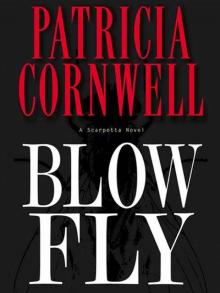 Blow Fly
Blow Fly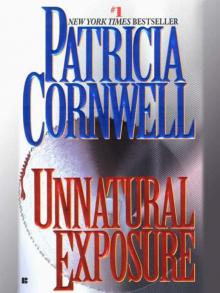 Unnatural Exposure
Unnatural Exposure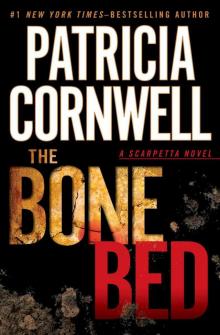 The Bone Bed
The Bone Bed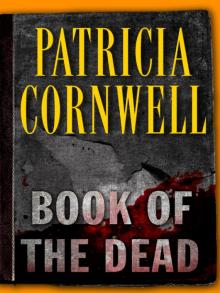 Book of the Dead
Book of the Dead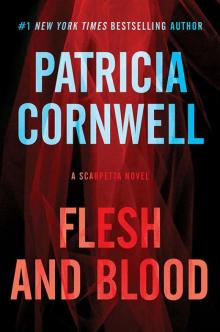 Flesh and Blood: A Scarpetta Novel (Scarpetta Novels Book 22)
Flesh and Blood: A Scarpetta Novel (Scarpetta Novels Book 22)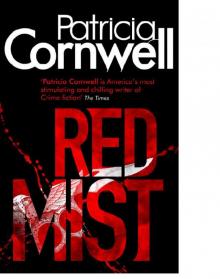 Red Mist
Red Mist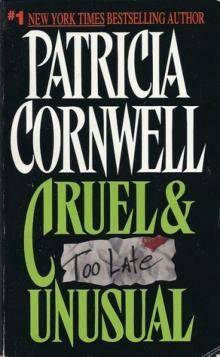 Cruel & Unusual
Cruel & Unusual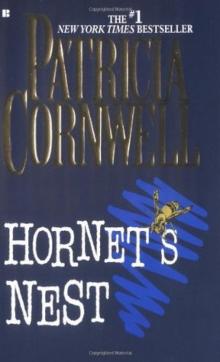 Hornet's Nest
Hornet's Nest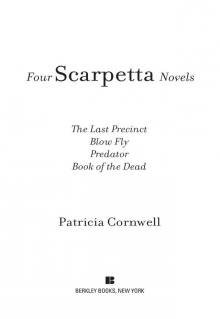 Four Scarpetta Novels
Four Scarpetta Novels Scarpetta's Winter Table
Scarpetta's Winter Table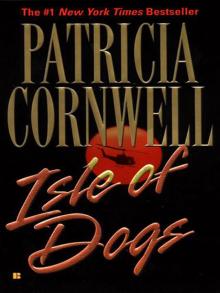 Isle of Dogs
Isle of Dogs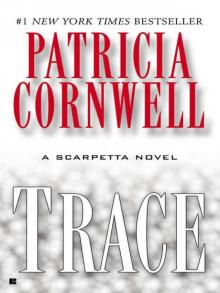 Trace
Trace Postmortem
Postmortem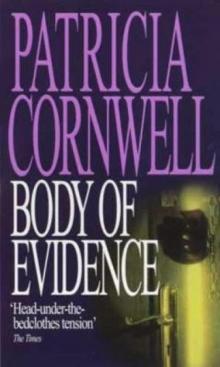 Body of Evidence ks-2
Body of Evidence ks-2 Southern Cross
Southern Cross All That Remains
All That Remains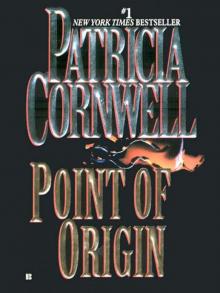 Point of Origin
Point of Origin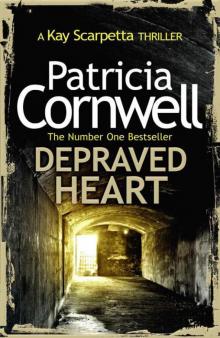 Depraved Heart
Depraved Heart Ruth, a Portrait: The Story of Ruth Bell Graham
Ruth, a Portrait: The Story of Ruth Bell Graham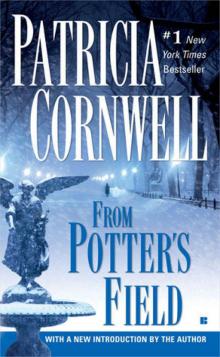 From Potter's Field
From Potter's Field Flesh and Blood
Flesh and Blood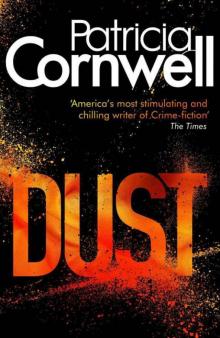 Dust
Dust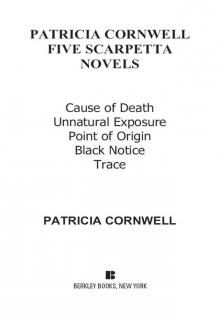 The Body Farm
The Body Farm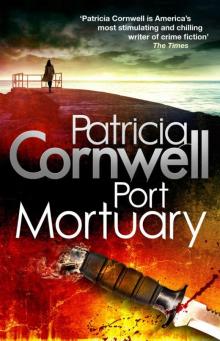 Port Mortuary
Port Mortuary Quantum
Quantum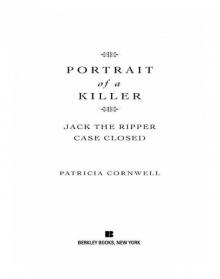 Portrait of a Killer: Jack the Ripper - Case Closed
Portrait of a Killer: Jack the Ripper - Case Closed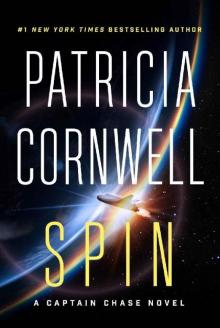 Spin (Captain Chase)
Spin (Captain Chase)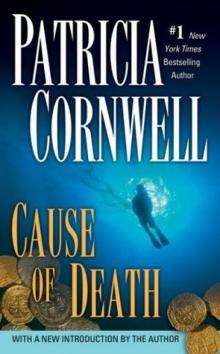 Cause of Death
Cause of Death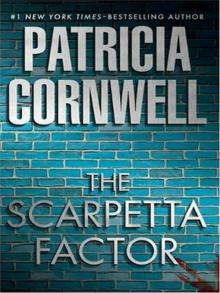 The Scarpetta Factor
The Scarpetta Factor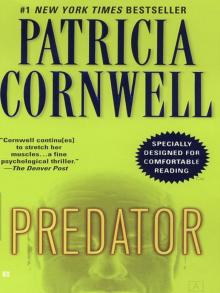 Predator
Predator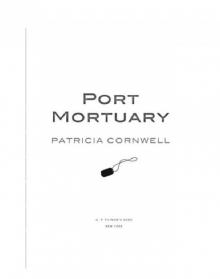 Scarpetta 18 - Port Mortuary
Scarpetta 18 - Port Mortuary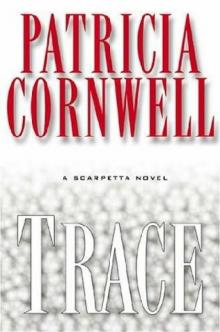 Trace ks-13
Trace ks-13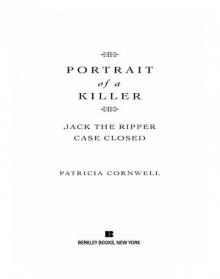 Portrait of a Killer
Portrait of a Killer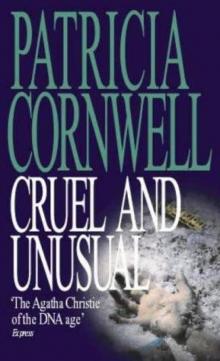 Cruel and Unusual ks-4
Cruel and Unusual ks-4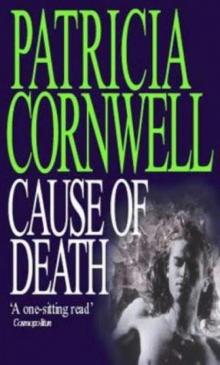 Cause Of Death ks-7
Cause Of Death ks-7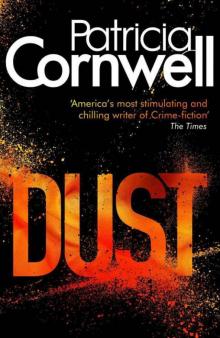 Dust ks-21
Dust ks-21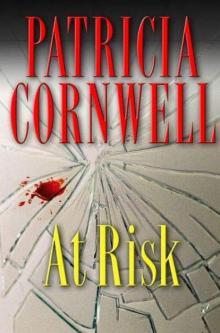 At Risk wg-1
At Risk wg-1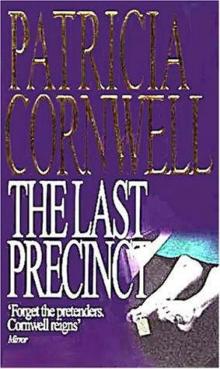 The Last Precinct ks-11
The Last Precinct ks-11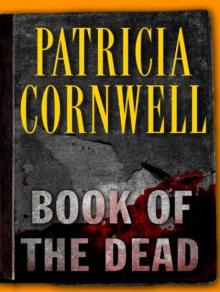 Book of the Dead ks-15
Book of the Dead ks-15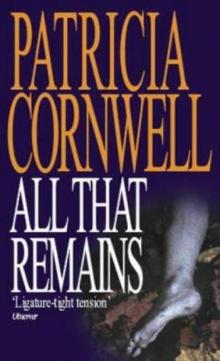 All That Remains ks-3
All That Remains ks-3 Ruth, a Portrait
Ruth, a Portrait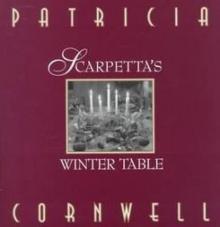 Scarpetta's Winter Table (kay scarpetta)
Scarpetta's Winter Table (kay scarpetta) From Potter's Field ks-6
From Potter's Field ks-6 Scarpetta
Scarpetta Isle of Dogs jhabavw-3
Isle of Dogs jhabavw-3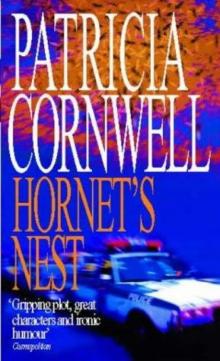 Hornet's Nest jhabavw-1
Hornet's Nest jhabavw-1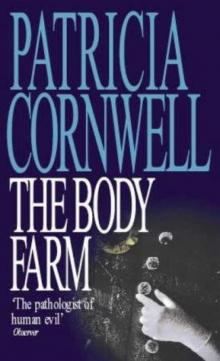 The Body Farm ks-5
The Body Farm ks-5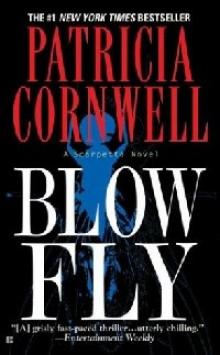 Blow Fly ks-12
Blow Fly ks-12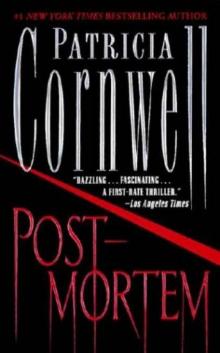 Post Mortem
Post Mortem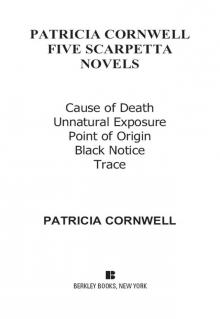 Five Scarpetta Novels
Five Scarpetta Novels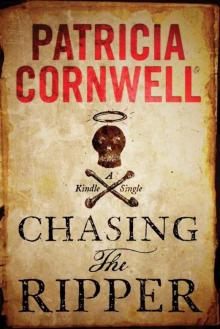 Chasing the Ripper (Kindle Single)
Chasing the Ripper (Kindle Single)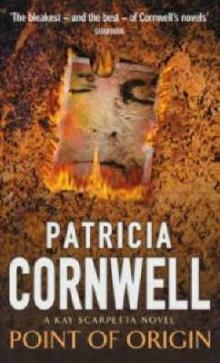 Point of Origin ks-9
Point of Origin ks-9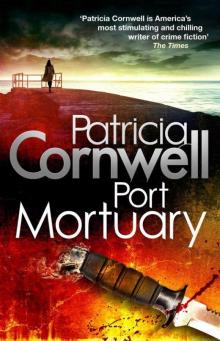 Port Mortuary (2010)
Port Mortuary (2010)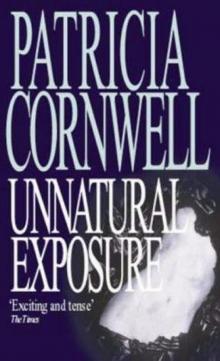 Unnatural Exposure ks-8
Unnatural Exposure ks-8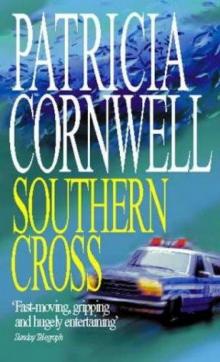 Southern Cross uhabavw-2
Southern Cross uhabavw-2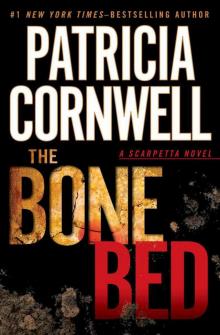 The Bone Bed ks-20
The Bone Bed ks-20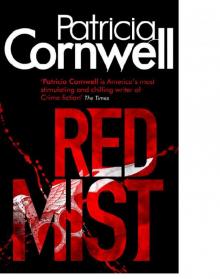 Red Mist ks-19
Red Mist ks-19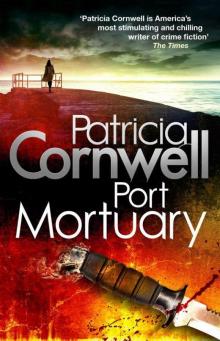 Port Mortuary (2010) ks-18
Port Mortuary (2010) ks-18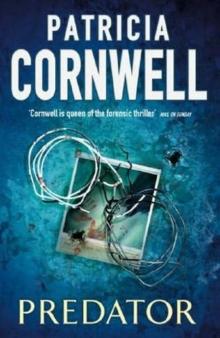 Predator ks-14
Predator ks-14